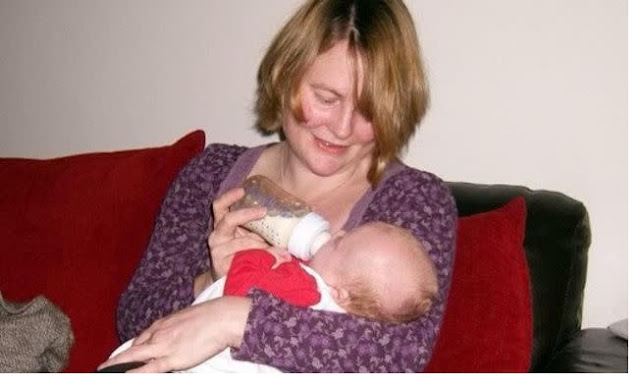An initial parliamentary inquiry into why around 30,000 ladies in the UK have physical and mental health problems every year after having a baby will share its findings in a month and suggest how the numbers can be reduced.
The moment Gill Palace became pregnant with her most memorable child in 2011, she was ecstatic. She had a healthy, clear pregnancy, but her labor was terrible.
"I told my mom that I went into the ER as a fiddler, a working police officer, and I came out gaunt, jobless," Gill muses.
Gill's baby was premature and stopped in the birth canal. When his pulse dropped, doctors used forceps to save his life.Be that as it may, "the way they did it, they also tragically basically hurt me," says Gill.Because of the confused means of transportation, Gill was extremely torn.
"I had an opening between my anus and my vagina. So I was pulling out of my vagina," Gill makes sense.
"Eventually seven days after giving birth, I was fitted with an emergency colostomy, which is the ostomy I actually have. That's how I lost my job as a police officer because of my really serious mental health issues."
Gill chose to share the details because she says she is "tired of the silence" involving women's wellbeing and is a supporter of an absolute initial all-party parliamentary inquiry into childbirth injuries.
The application, led by Stafford MP Theo Clarke, was positioned to address the way around 30,000 women in the UK experience birth injuries each year.
A birth injury is characterized as the experience of physical or near pain during or after transport. For some, it is so extreme that approximately one in 20 ladies also support PTSD.
For Ms Clarke, who shared her own introduction to the world's hurt story a year ago, the subject is extremely private.She was admitted for critical medical care after vigorously draining the tear.
"I really thought it was really important to share my story," Ms Clarke said.
"I launched a public inquiry into birth injuries in Parliament on the basis that I was really stunned in the first place to find that there had been no precedent," she added.
Since sharing her story, Ms Clarke says "many mums across the UK" have stayed in touch with her office to share their experiences, which have helped shape the issues explored in the application.
“It became exceptionally clear to me that there is a huge problem with disparities in administration admissions for individuals who have suffered a mental or actual injury like myself.
"I really believe this application will think of functional proposals for the nation's top leader and say 'this is all the mums tell us they need'."
Ms Clarke believes that by sharing her story and hearing from many others, she will uncover the trauma issues that several women have experienced after giving birth.
This is the focus of MASIC, a cause that supports women who have experienced real birth injuries, saying that such injuries are once in a while overlooked during childbirth and later excused.
“There is a real postcode care lottery,” says Chloe Oliver, chief executive of MASIC.
"The hold-up can be very lengthy, seeing pelvic health specialists and physical therapy and all the while trying to take care of the baby while having really worrying side effects."
MASIC is currently collecting information to try to explain the profound and monetary 'wound costs' associated with birth injury. In addition to NHS costs, however, there are also individual costs for families.
"It affects your family ties, your work life, you most likely won't be able to go back to the gig you had before you got pregnant. You know, your life changes completely and you have to live with that," Ms Oliver says.
A representative from the Branch of Wellbeing and Social Refinement said: “We aim to make the NHS the safest place on the planet to conceive, which is why birth injury support is one of the main concerns of the Women's Wellbeing procedure. 2024.
"We are expanding the interest in maternity management to £186m every year from next month to develop the maternity workforce and further develop maternity and newborn management across Britain. What's more, almost £35m more has been announced in the Spring Spending Plan. more to develop maternity security.'










0 Comments